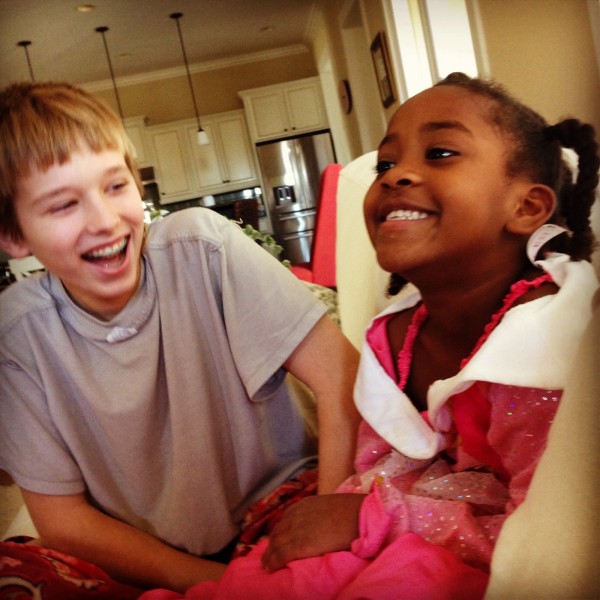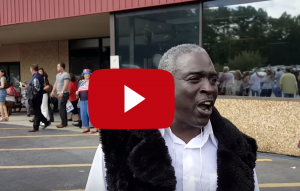If you’ve been reading this blog long, you’ve been on my hair journey with me and my daughter (who originated from Ethiopia) as we’ve laughed and cried our way through this new and daunting experience. Remarkably, this article keeps getting comments — both negative and positive — even a year after its publication. Some weeks, it’s our most popular blog post. (Not to mention this post that dipped into the political, or even this demonstration of the bantu knots I tried.)
Tonight, this thoughtful comment came in from “Conversations with Hair” and I just had to share it.
I was thinking as I watched a documentary on Muhammed Ali and I wanted to say this one more thing. The women who come up to you and say things are themselves little black girls who experienced a great deal of rejection, overtly and covertly, subliminally and directly for who they were and are as women.
It is difficult for you and your daughter, but in a way, all of these women are your daughters- in that, they experienced the same shame that they are unwittingly inflicting upon their child – and by extension- you. Sometimes, as a black woman, it is an act of will to not be incredulous that the fact of our blackness and beauty has been so reviled in so many ways throughout our recent colonial history. When these women say these things to you, it might help to remember that they are coming from a place of pain. I know its hard to be compassionate to some stranger who calls you out, it’s often work to be so and it’s often an unexpected bit of work, when you are out trying to get your errands done. I wonder what would happen if you popped out with, “you know my daughter’s untouched natural hair is beautiful. As I know yours is. As I know you are.”
Or, ” I know someone shamed you about your natural hair but I think you and my daughter are beautiful without any work or effort.” LOL!
No actual human can think of things like that in the moment when they feel under attack, but trust me, as a black woman, that is the deeply layered subtext of these conversations. These women are terrified that you might not protect your daughter from scorn and ridicule, the same scorn and ridicule to which they themselves either were subjected or ran the risk of being subjected.
Maybe if you approach it with compassion, just in your thoughts, it won’t feel so hurtful or violating when people say things to you. Understand the collective memory of black American women is filled with rape and violation and subjugation. (as well as overcoming and strength and transcendence but the pain is still there nevertheless.) These women are terrified by those subconscious, collective, cellular memories of pain, and they are terrified for your daughter’s sake. You might benefit from reading some natural hair blogs on Youtube and on the Internet. You might find a lot of support in your desire to let your daughter’s hair just be as well as a lot of black women who have made the journey from self rejection to self love.
Anyway, I don’t have much to add, except that I really appreciate this commenter’s perspective… I think she might be onto something.
Tomorrow, another trip to the hair salon for Naomi — I’m sure we’ll have new adventures to report. In the meantime, in spite of all the hateful comments I receive — I appreciate the opportunity to have conversations like the one I’m having with the commenter above.
They are important, aren’t they?










